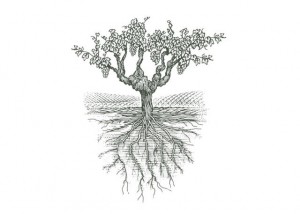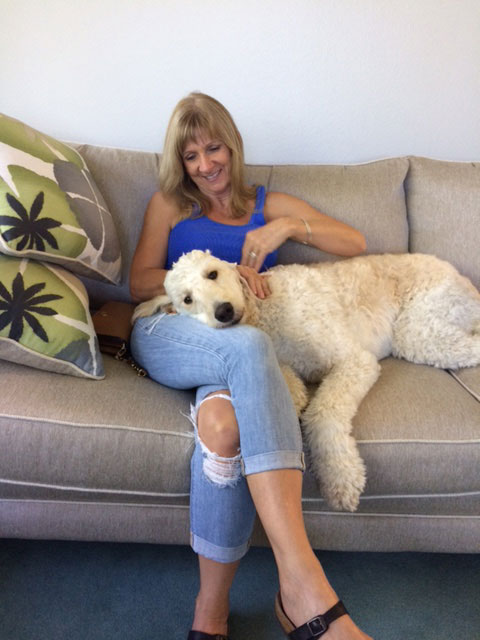“Independent” in our culture has a positive connotation, but in relationships, it is a killer. I have had clients that come in for couples counseling who have been married 20 or 30 years. They sleep in separate bedrooms, rarely have sex and then only mechanically, have entirely different sets of friends, share no activities, go on separate vacations, and never, ever have heart-to-heart talks about what is going on in each other’s lives. In essence, they are roommates. They come in saying they “have grown apart.” This is simply not how we are wired for relationships.
But there is an even more sinister status quo that kills relationships. If independence sounds bad to you, a still more painful alternative is being part of a Codependent couple. Codependent relationships are exhausting, unsatisfying, and stressful. Often the parties feel trapped, yet they have no idea why. There is even less emotional intimacy than with Independent couples. More importantly, open, honest, authentic, vulnerable communication is completely missing as both parties try to pretend about their emotions, try to please one another at any cost to themselves, and never have the important, satisfying, supportive conversations all healthy couples have. There cannot be intimacy without truth; there cannot be truth without grace. Codependent couples stifle both truth and grace in their attempts to hold on to control and keep their partner from getting too close.
Codependence is perpetuated in families. It is passed down to children; they seek out partners who will be Codependent, and then they have children who become Codependent with them. Many people are Codependent outside of their immediate families to include extended family, friends, and coworkers. This effectively cuts them off from any satisfying relationships, in every aspect of their lives. They end up being lonely, numbing, and often suffer from anxiety, depression, substance abuse, and any number of other Codependent co-occurring addictions.
What is Codependence?
Codependence, simply defined, is an addiction to control. The Codependent becomes so addicted to control that they even let others control them in an attempt to keep their control of others. A lack of control and an intensive control develops simultaneously in a relationship that effectively kills the relationship. Codependents cannot be their authentic selves in a relationship. When one party is depressed, the other party is helpless to keep from being depressed. When one anxious, both parties duplicate the feeling. Thus truth and grace are effectively blocked.
Codependent people may think that they have healthy boundaries, but they are often “moving” boundaries. In their minds, they have a limit, but they often justify moving it slightly many times to keep the illusion of control. They still consider it a firm boundary if they can move it whenever they feel uncomfortable about keeping it because of displeasure from others or to impose control upon others.
Codependence is a very frustrating, painful state. This is why it is so deadly to relationships. Codependents struggle to control others and yet easily give away all of their own control to others. They do not take responsibility for their own behavior, but rather take responsibility for others’ behavior. They feel like their needs never get met, and yet they labor endlessly to meet the needs of other people. They often don’t know what they are feeling because their feelings are simply a reflection of the feelings of other people around them, subject to change constantly.
Codependents do not trust their own feelings; only the perceived feelings of others around them. They often don’t have a clue as to what is really going on in another’s life, and yet they try to make decisions for them. They spend their lives reacting to situations depending upon how they believe others want them to react, rather than responding according to their personal boundaries. A Codependent’s thoughts, ideas, feelings, emotions, values, motives, desires, wants, needs, decisions, behaviors, limits, and morals are all simply reflections of what they perceive others around them are projecting. They are like a covalent molecule traveling through space constantly attaching to other molecules to become something that they aren’t and something that they don’t want to be.
Codependents at times even have trouble knowing what they are feeling. I have actually had a client in the same session say that she believes that she is far too trusting, that she trusts quickly and completely when she shouldn’t. Later in the session, she said that she has serious trust problems and feels she has trouble ever trusting anyone. When I pointed out her conflicting statements, even though she remembered saying it, she could not believe she had said it.
What is the healthy alternative to Codependence?
There is a third relational type that represents how God relates to us and how healthy people can relate to one another: Interdependence. An Interdependent relationship is a balanced, healthy relationship where two people have firm boundaries between where they end and where someone else begins. They feel safe enough to come very close and be intimate, authentic, and vulnerable with the people in their lives who have earned this level of trust.
Interdependent relationships are satisfying. The parties can come close to another in shared intimacy, completely retaining their own identities, and are able to know when to pull back in a positive fashion, not too far away and not for too long of a period of time. They enjoy the relationship because there is the intimacy of two complete individuals coming together closely and safely, giving a dynamic to their relationship together that neither of them has alone. They have relationships based upon safety, respect, unconditional love, acceptance, and most of all, freedom.
God is Interdependent with us. He is sovereign, but it is clear that we have free will. His sovereignty and our free will are held in tension. God is responsible for some things, but we are clearly responsible for others. God resides in three persons: the Father, Son, and Holy Spirit. They each have firm boundaries, yet share a deep intimacy. They have different identities, different qualities, and different functions. God models Interdependence for us!


